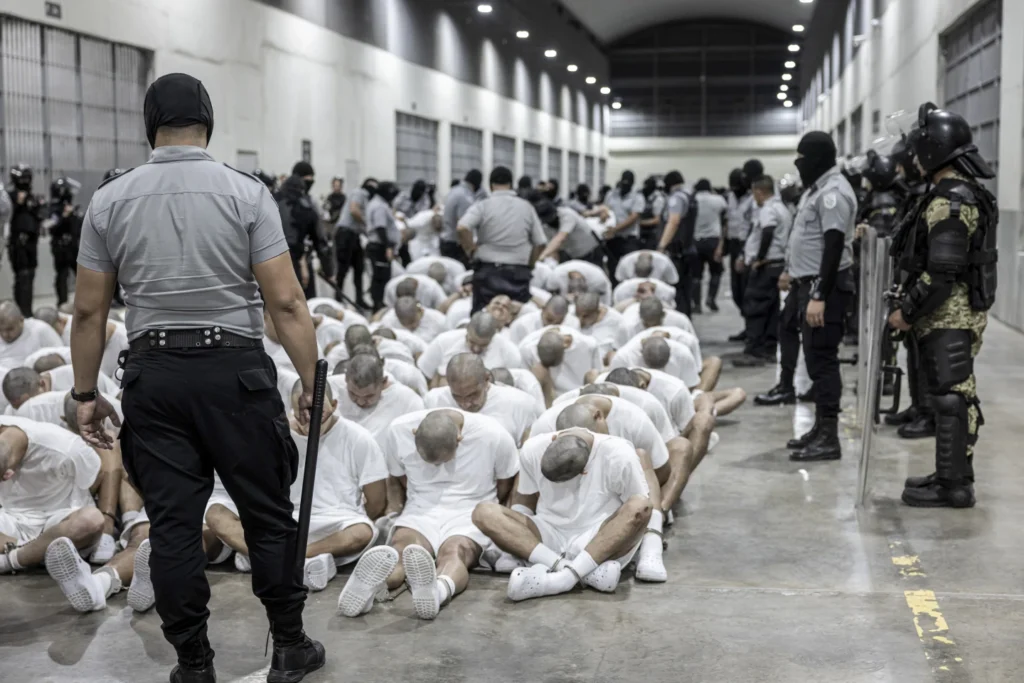The Trump administration has deported 10 individuals it alleges are gang members to El Salvador, continuing a broader strategy to combat gang-related crime. Officials say these measures are part of ongoing efforts to protect communities both in the United States and abroad.
Authorities confirmed that the individuals were identified through investigations linking them to gang activity. They were detained and processed for deportation following legal procedures.
“Ensuring public safety remains a top priority,” a senior official said. “These deportations send a clear message that criminal activity will not be tolerated.”
The operation reflects a coordinated approach between U.S. federal agencies and authorities in El Salvador. Officials in both countries are working to monitor deportees and support measures aimed at reducing gang influence.
Gang violence has been a persistent concern in the United States and Central America. By deporting individuals involved in criminal networks, the administration aims to disrupt organized activity and prevent further harm to communities.
El Salvador has confirmed receipt of the deportees, noting that local authorities will assess any ongoing criminal connections and monitor integration into society. Cooperation between the two nations is seen as vital to addressing transnational gang threats.
The U.S. Department of Homeland Security emphasized that deportation decisions follow strict legal standards. Individuals with pending legal cases are processed according to federal immigration laws, ensuring due process is observed.
Experts say that targeted deportations are only one part of a broader anti-gang strategy. Measures also include community outreach, law enforcement coordination, and programs designed to prevent youth involvement in gangs.
This latest action marks another chapter in the Trump administration’s efforts to combat organized crime. Officials argue that reducing gang activity strengthens public safety and protects vulnerable communities.
The deportation program has faced both support and criticism. Advocates highlight the importance of removing dangerous actors from U.S. soil, while critics call for attention to rehabilitation and prevention strategies alongside enforcement measures.
Authorities said the operation was carefully planned to minimize risks during transport. The individuals were escorted under strict security protocols to ensure the safety of both U.S. personnel and the deportees themselves.
Transnational gangs often operate across multiple countries, complicating law enforcement efforts. Collaboration between the U.S. and El Salvador is viewed as essential to tracking and mitigating these criminal networks.
Officials reaffirmed that ongoing monitoring and intelligence-sharing will continue. The goal is to prevent deportees from returning to criminal activity, both abroad and within the United States.
Analysts note that addressing gang violence requires a combination of enforcement, social programs, and international cooperation. This latest deportation effort demonstrates the administration’s commitment to a multi-faceted approach.
By taking decisive action, the Trump administration hopes to reduce crime rates and improve safety for communities affected by gang activity. Officials say these measures also serve as a deterrent to others considering involvement in criminal networks.
Public safety agencies across the United States continue to coordinate with federal immigration authorities to identify individuals linked to gangs. Deportation remains one tool among many designed to disrupt criminal activity.
The administration’s efforts highlight the challenges of transnational crime and the importance of proactive measures. By deporting alleged gang members, authorities aim to protect both U.S. citizens and international partners.
The latest deportations underscore the ongoing commitment to addressing gang violence. Officials stressed that enforcement, cooperation, and monitoring remain central to sustaining long-term security objectives.


